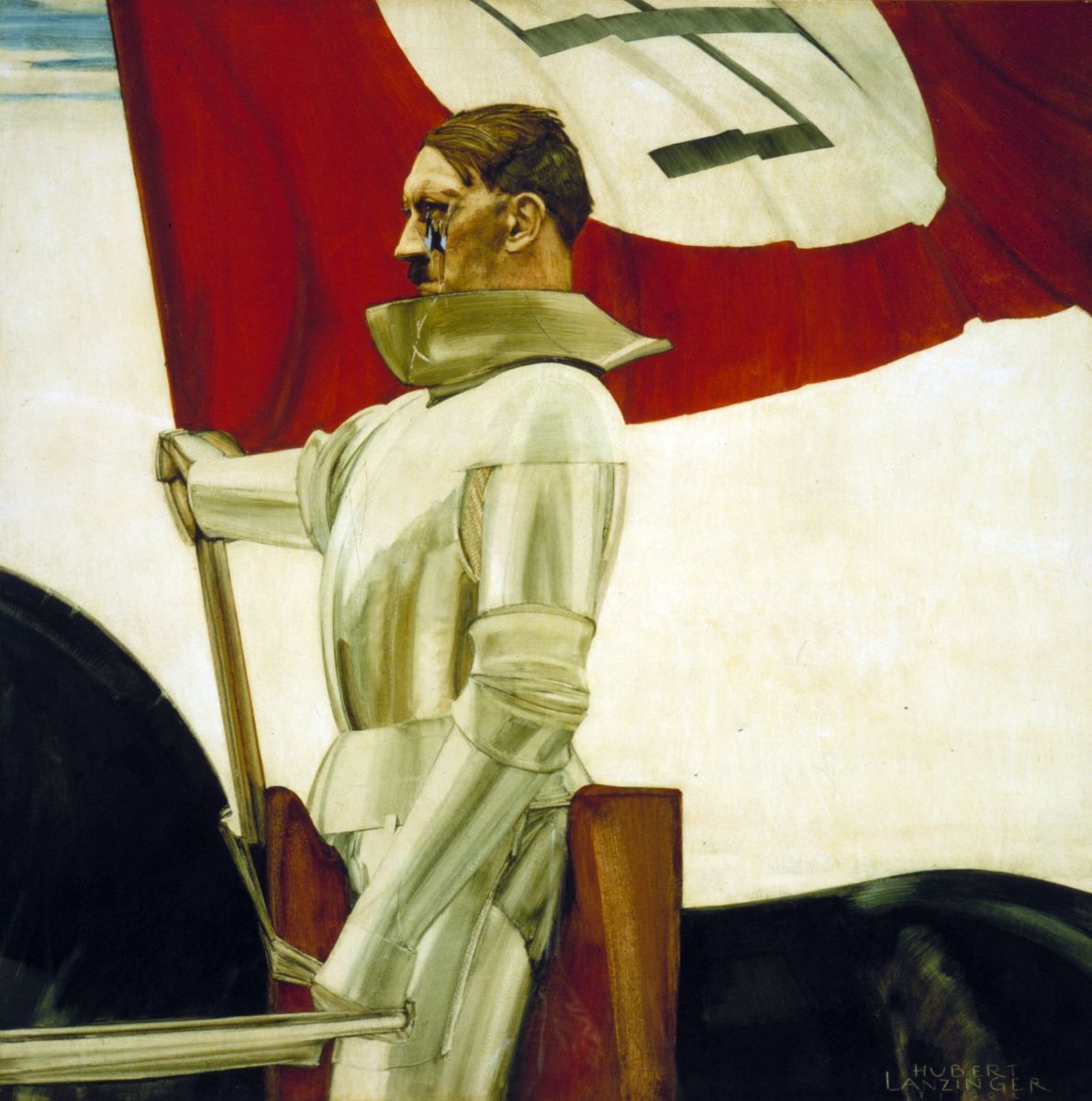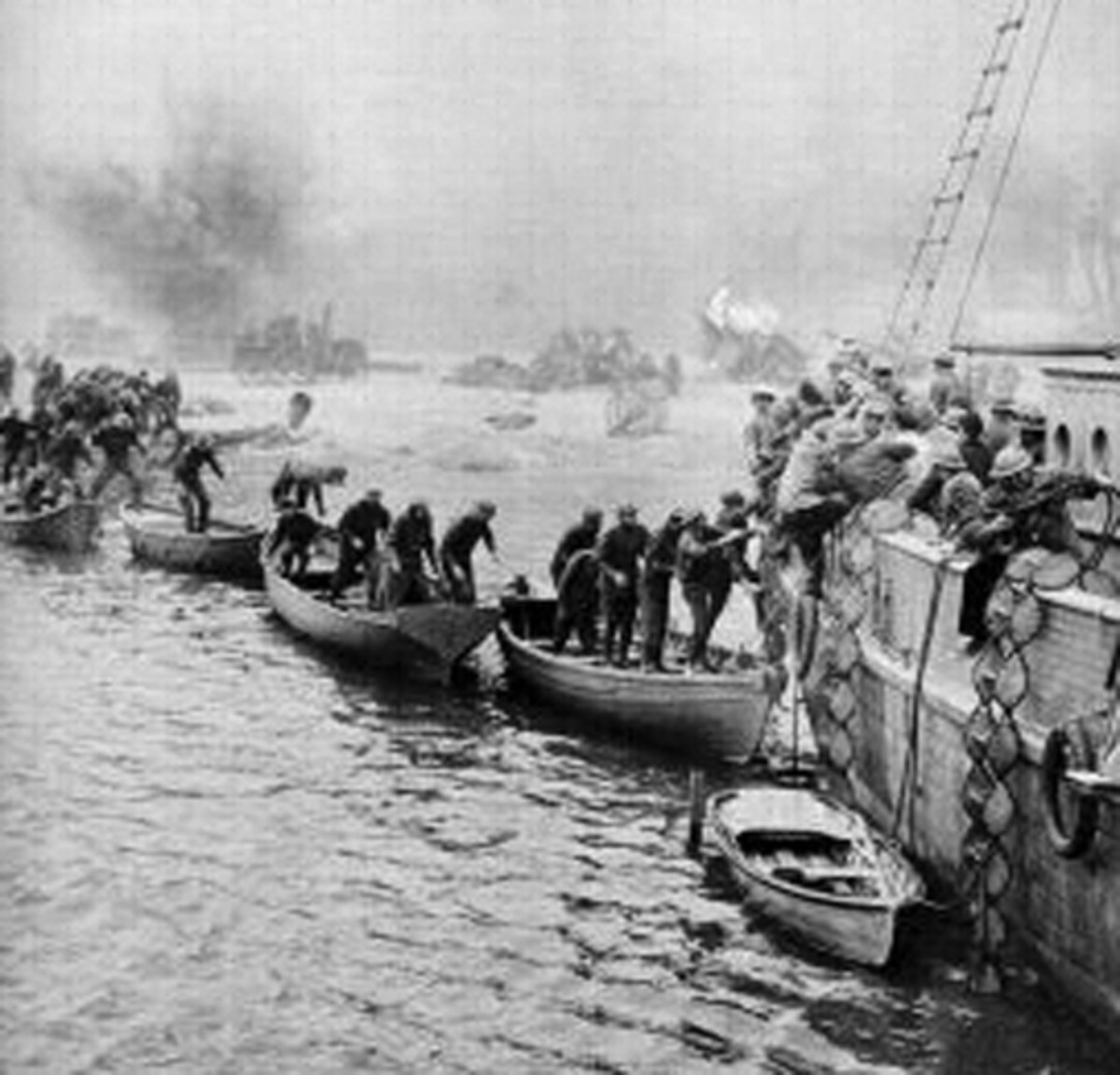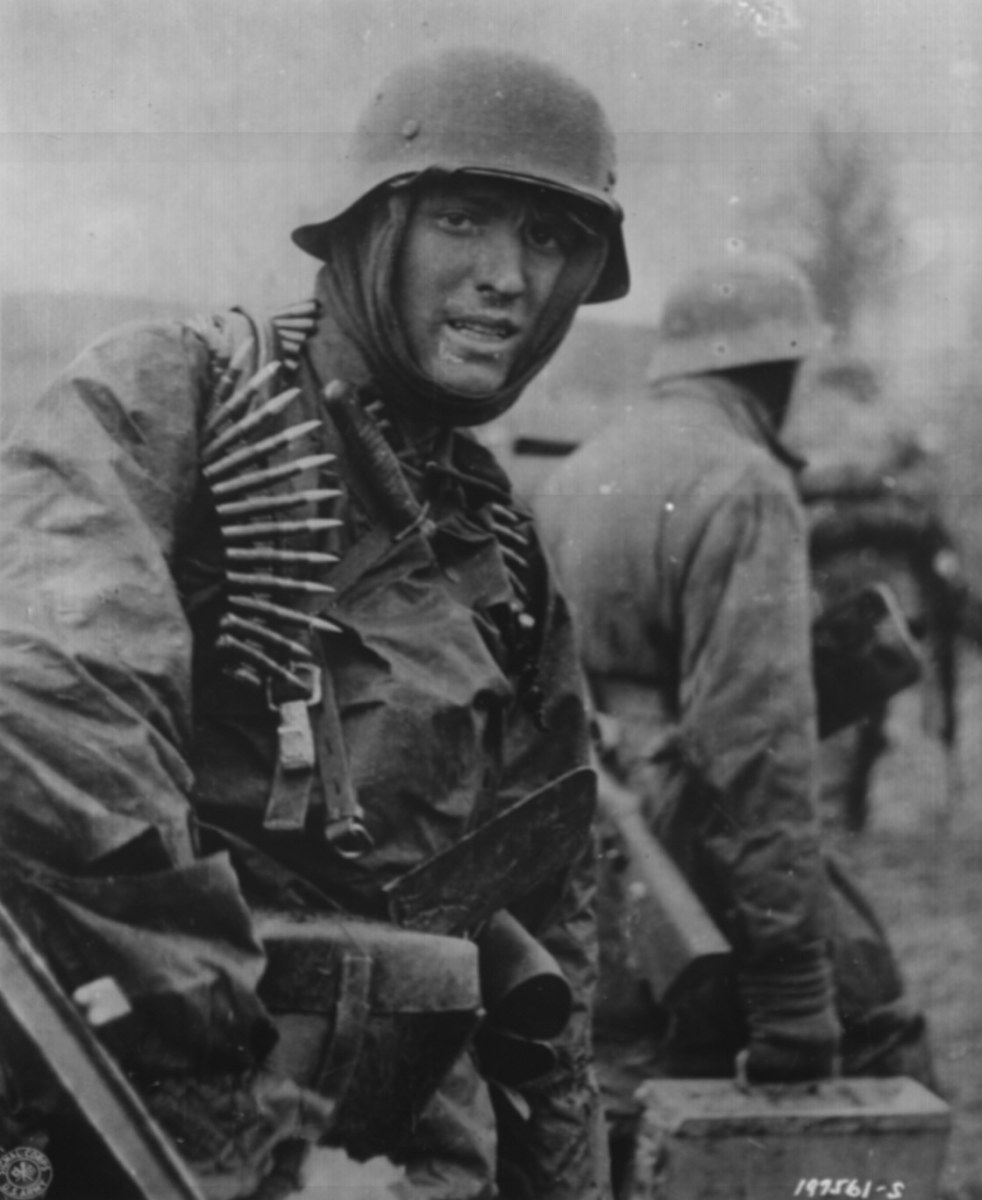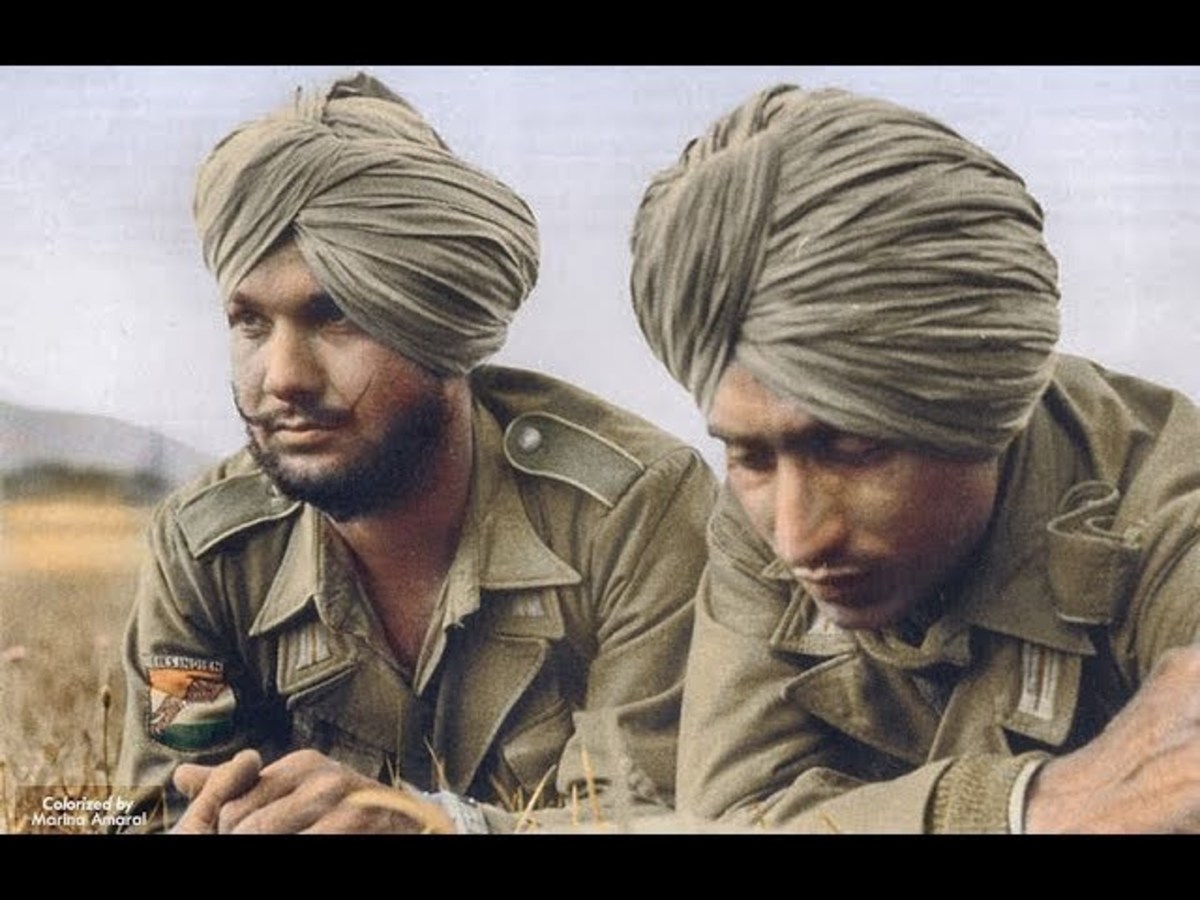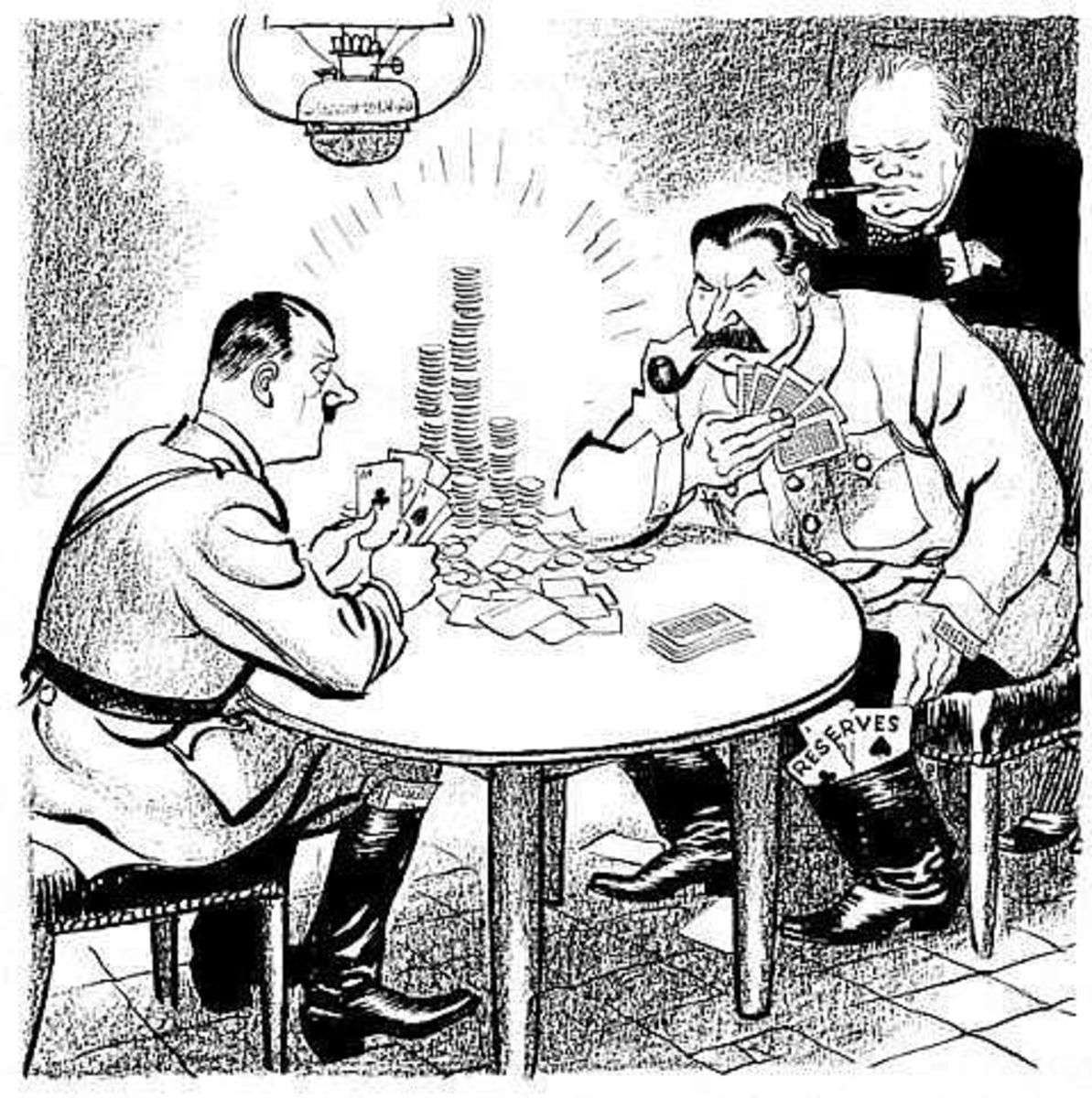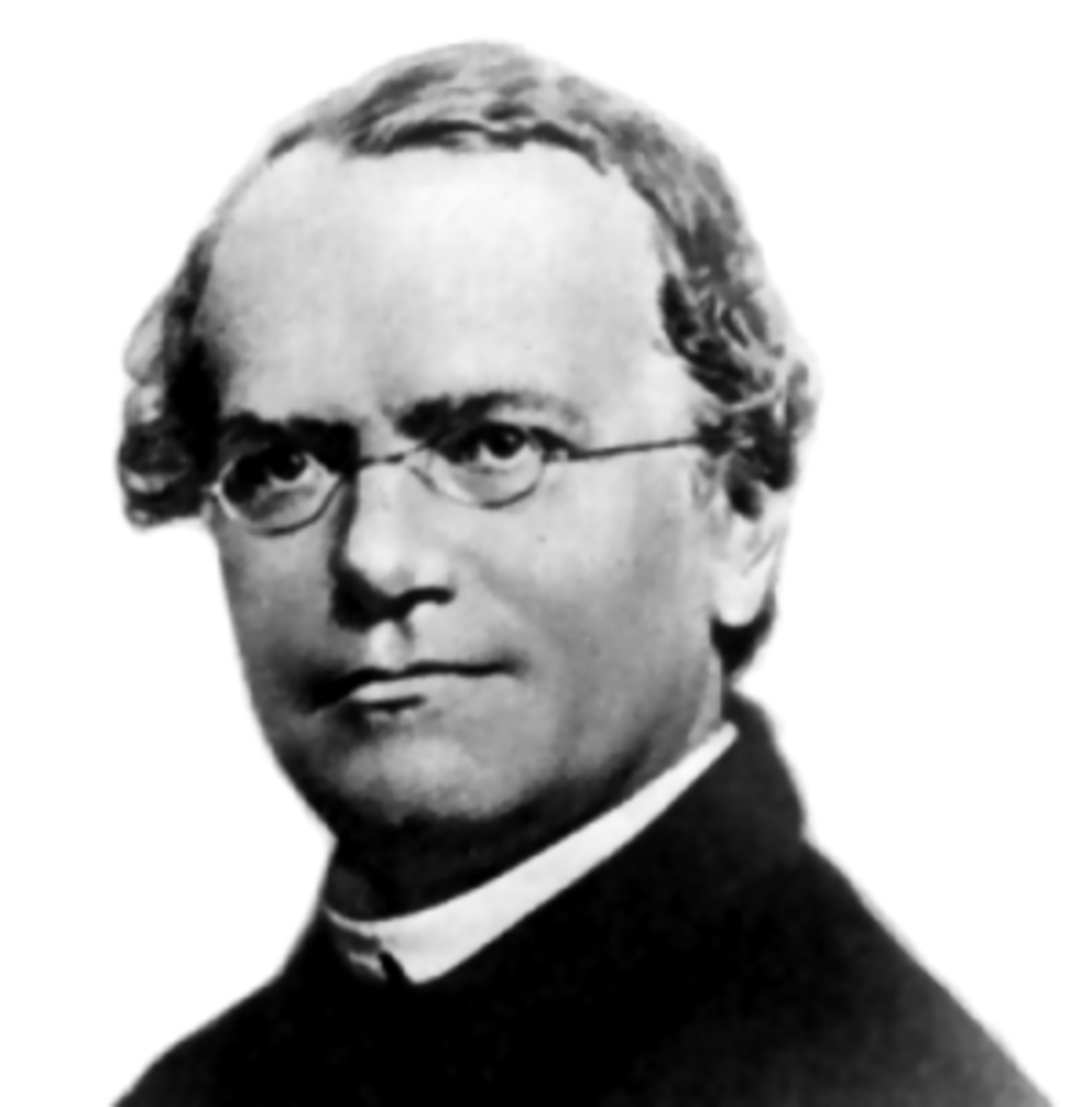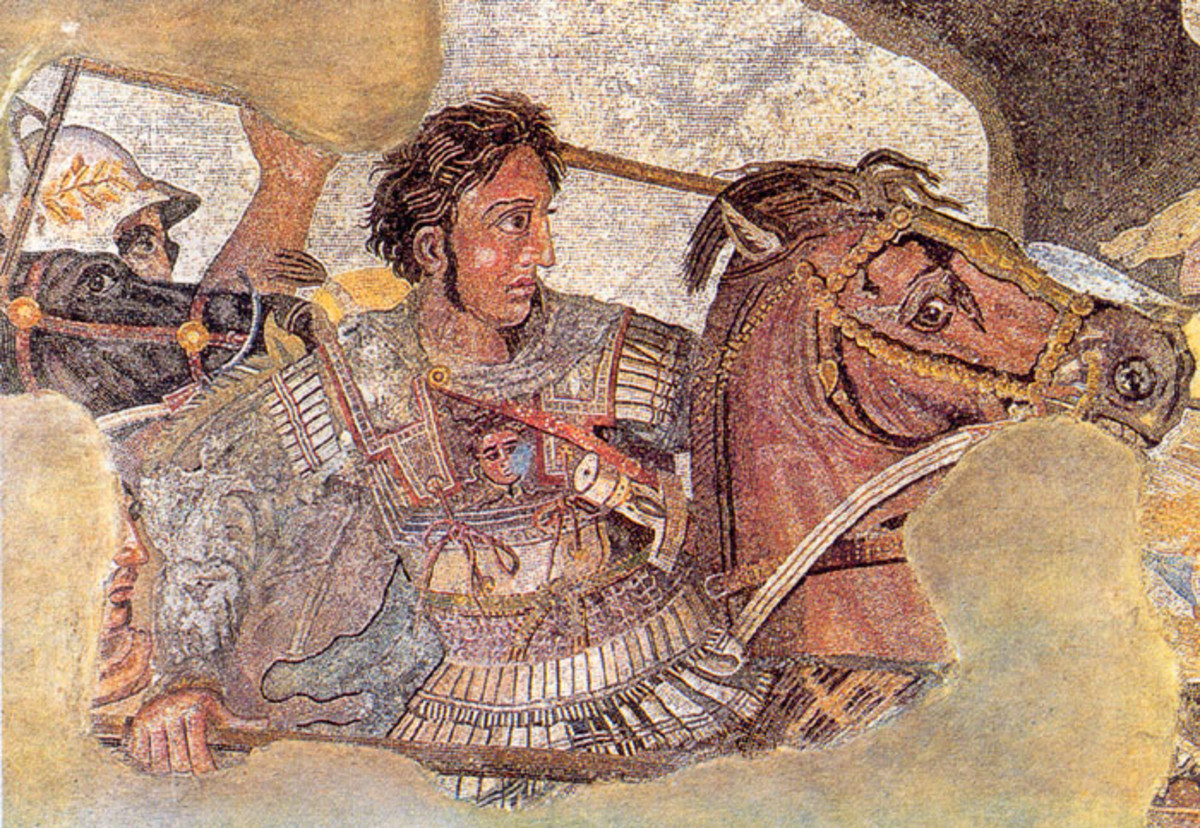- HubPages»
- Books, Literature, and Writing»
- Books & Novels»
- Nonfiction
Vive La France and Russia, too.
Before the dust clears, books are written.

The West (from Berlin).
I'm more ignorant than any other qualification when it comes to this subject. But I recall the time, growing up in the aftermath of WWII, when old-timers (who were not old at the time) always seemed to get around to the subject. There was the invasion of Russia, for instance, that would often evoke the comment: "If Hitler had conquered Russia, he could have taken England, too, without firing a shot." The invasion of England that did not materialize also won attention. And then there were numerous personal stories. I met a violin player from a camp with gnarled fingers, a man with photographs of family members from Europe -- "all their letters stopped," he said -- and numerous interesting people one came across, such as someone who, because of the war, never said a word -- to anybody about anything. People remembered how they felt during the war. Some were scared. Some were angry. Some were too young. Fresh recruits in 1945 helped liberate towns inhabited by old folk and children. But the main fact was that the war was over. For this reason alone, it was a good time to be alive.
Berlin was divided into four sections, and this was an appreciated assurance. All wars were started by Germans. That, at least, was what was said. For decades, Germany has not started a war. Yet fighting continues. And violence, often for no reason, is a fact of life that one victor, the USA, is at present hard pressed to grapple with. It offers up thoughts and prayers after the fact, but protection is needed beforehand. Since May, 1945, when Germany capitulated, the United States has become an increasingly dangerous country. Guns are plentiful and responsibility scarce. This August, it will have been one hundred years since Germany declared war on both France and Russia. This was the beginning of World War I, which leads, if not directly, then circuitously, into World War II. German patriots blamed the Treaty of Versailles for its undisguised anti-German slant. But there was more to it than met the eye. In September, 1939, France declared war on Germany, following the invasion of Poland, re-inaugurating hostilities. In the summer of 1941 Germany invaded Russia, after having divided Poland.
It might seem in retrospect that momentous actions occurred instantaneously and overnight changed the world. But to read about Hitler's Generals is to become acquainted with the exact opposite. There was plenty of planning and plans that went awry, as well as promotions and demotions, and careers that advanced or spiraled downward. The differences among the Generals admitted wide divergences. Brilliance was not lacking. Winning favor at the top, however, for the sake of a championed tactic, was often impossible, regardless of merit. One may well wonder, while reading and reflecting in peaceful surroundings, why war erupted at all, much less on such a grand plane, involving the entire world. But to the likes of Generals Blomberg, Fritsch, Richenau, Guderian, Thoma, Brauchitsch, and Halder, who enabled a disarmed, disgraced nation transition from WWI to WWII, this was not a source of wonder. General Rohricht, in the pages of a book, denies the notion that the Wehrmacht, or Armed Forces, helped bring Hitler to power. No one likes Hitler -- a name or word that connotes utter madness. But there are aspects to this German intrigue throughout the 1930s that will probably never come to light.
Generals Schleicher and Hammerstein, early on, supposedly considered a coup d'etat. Schleicher himself then became a murder victim. Hitler no doubt learned how to deftly avoid an assassin's bullet, the subject of a relatively recent movie (Valkyrie). Not until 1938, with the death of President von Hindenburg, did the dreaded dictator declare himself Supreme Commander in Chief of the Wehrmacht. It was no ordinary military that he presided over. Among his Generals was Manstein, who earned the admiration of his colleagues as "their "ablest". Later, he took Sevastopol, a Russian Naval Base on the Black Sea. But from the little reading I have done, Rundstedt emerges as the the single professional soldier who might actually have represented, in thinking if not in deed, the overall German populace. He liked the idea of expansion, which could not have been against the public grain. But he was all old school, unsuited to Nazism, if unwilling to break his loyal oath of allegiance. Along with Kluge, it was hoped that Rundstedt would somehow wrest power away from its control by men who would later be equated with the devil incarnate.
Killing on the brain.
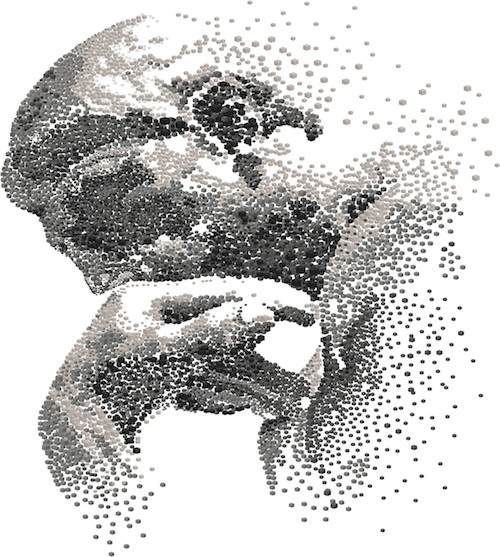
What were they thinking?
Their tongues are fairly guarded, speaking about speed and armor, tank maneuvers, air support, parachuters, and their controversial leader's lack of familiarity with sea battle. They do not comment on what makes them so reprehensible almost to a man in today's more enlightened culture. To us, they should have known better. But when it came to an armed move against France, many Generals expressed grave apprehensions. Anything short of complete success would trigger unbridled reprisals, not only from the French, but the British as well. Germany would not have been able to sustain them without significant losses. They were brave men, these Generals, accustomed to bold moves, where warranted. But such a gamble demanded inspirational leadership. It was of a sort that perhaps serves to explain what privileged, powerful Germans responded to, including those infamous "industrialists", since it is still a mystery as to how the Weimar Republic disappeared so that WWII could actually happen. There are many explanations, to be sure, but nothing adds up. Not really.
Case in point: extra-military objectives. Keeping in mind that in 1948 German Generals were probably not fully candid with an Allied author, they nonetheless admitted being baffled by Operation Sea Lion. This was the plan to invade England, which never happened. On Hitler's orders, armored forces stopped within sight of Dunkirk while the British "miraculously" escaped. They left behind their weaponry and faced basic shortages at home. They were not in shape to ward off a well-equipped, highly motivated, invading force. The German Generals were not in agreement as to how to conduct an invasion, but they were sufficiently stoked to bring it off. From day to day, hour to hour, they awaited orders. Goering was certain that the Royal Air Force and Royal Navy could be checked -- though this was not the shared, less enthusiastic view of Admirals Voss, Brinkmann, Breuning, and Enzel. In sum, changing the map of Europe incorporated non-military, abstract goals, taking into account various competing, racial or people-bound cultures.
The Generals wax eloquently on their advance on France. It was complex and involved an enormous as well as strategically divided effort. But it was done without the full confidence of its leaders in the field. Holland, Belgium, and Luxembourg played an essential role. They caved in, but might have fought on, the Generals observe. There are strong indications that France made crucial mistakes and also might have given in to defeatism. But the upshot of the whole enterprise was the astonishment at how relatively short the operation took that caused France, so great a prize, to fall into German hands. World War I's trench-soldiers fought desperately for practically inches of land. When it came to the British, however, Hitler stalled, claiming that he did not have enough tanks, and that the marshes of Flanders were a concern. Later, Rundstedt, Soderstern, and Blumentritt were somewhat startled to hear him speak admiringly about the British Empire and the need to make peace with France.
This is not the man as Hitler has come down to us over the years. Apparently, he could be one way in private, while maintaining that familiar, strident image Nazi propaganda forged. People of the 1930s and early 1940s could not have been the same as they are now. The image of Hitler, carefully wrought on radio and film, was designed for a different audience. Other leaders shared some of his unrepentent qualities. They had to have the kind of resolve that could not be bought or bought off. FDR was elected four times. Churchill became indispensable to the English in addition to all English-speaking nations. There were others, too, not the least of which was Mussolini, Tojo, and Haile Salassie. Strong leadership was actively sought not just among the elite but the common citizens of three, possibly four continents, and an island as well. People believed in their leaders; they were not just chosen or appointed. As September 1941 passed into October, a couple of years after the destruction of Poland, Hitler, as history would have it in this 1948 publication, is enigmatically speechless on crossing the Channel. This, too, does not fully compute. Instead of pursuing a notable advantage in Europe, Hitler, an unapologetic aggressor, turned his attention to Russia, from which he anticipated trouble. His modus operandi was to give trouble to Russia first, and, he hoped, last.
Both Hero and Villain.
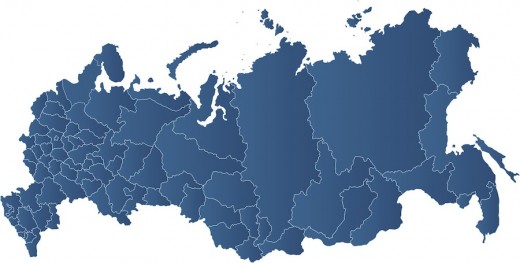
The East (also from Berlin)
Rundstedt was against it, but commanded the southern forces, together with Leeb in the north and von Bock in the center. None of the Generals said as much, but having begun in mid-June, winter probably seemed as though it arrived early. Far more disconcerting was the ability of Russia to reinforce lines that the Germans had wiped out. Years later, Russian emigrants would complain about how they had been used as cannon fodder. But there is also more than an indication that Russians were, as a lot, high-spirited, beyond the sting of death. According to Blumentritt, in the suburbs of Moscow, Russians emerged from factories to fight Germans wielding worker's tools. But make no mistake: Germans troops were also a fearsome lot. Large encirclements reaped magnificent rewards. At Vyasma and Kiev, more than half a million enemy combatants apiece were captured.
There were logical objectives involved, such as the oilfields of the Caucasus, which Hitler's economic advisers badly wanted. And unlike Napoleon, Hitler was unable to take Moscow. But there were idealogical motives as well. The Nazi High Command sought to destroy what they considered "Jewish-Bolshevism." This was more perception or misperception than reality, since relatively few Russians were either Jewish or Bolshevist. Yet this was one of Nazi Germany's primary raisons d'être. Long after the war ended, one could hear old-timers, regardless of race or religion, express regret that Hitler did not live up to the boast, real or not, that he was the only answer to international communism. It was not until 1966 that Hollywood made a comedy entitled The Russians are Coming. Even then, more than twenty years after V-E Day, it was hard to laugh.
As the Eastern operation continued, Hitler tells General Kleist that he will employ Hungarians, Rumanians, and Italians to guard a vulnerable flank. Why so cavalier? Interestingly, the Germans were destined to run out of petrol in their attempt to capture the oil rich Caucasus. Camels had to transport fuel to keep them going. But then, this was not a war of luxury. Without supplies, Russian soldiers maintained their presence by foraging for raw vegetables and acquiring, wherever possible, bread crusts. General Halder relates to the author how the Russians finally penetrated the German line in Stalingrad. Despite the fact that the Italian division, perhaps wisely, departed, there is no gossip about a hotheaded Hitler banging his fists against an inert object or ranting at the top of his voice. Instead, he ordered his troops not to withdraw, and the Generals cite this, above all, as the fateful strategy that led to their unraveling, making it easier, in the final analysis, for the Russians to cut them off.
1943 was not Hitler's favorite year. He is described by his Generals as "jumpy" in expectation of an Allied landing in Europe. Somehow, he determines that it will be in Normandy. He is right. But it will not do the Third Reich much good. Up till now, Germans have been unwanted houseguests, some sent to recuperate, in France. At the same time, the Soviets launched an offensive in the Ukraine. Eventually, over the course of time, full-blown distrust will develop in the German chain of command. Hitler is suspicious that Kluge, in charge of the West, will try to negotiate peace at the front. Rundstedt is finally removed from command in the East, still complaining about static defenses. Every yard must be fought for. Slackers will be court-martialed. Field Marshal Rommel, a genuine, undisputed German hero, is given a choice between poison and a fixed trial. Is any of this true? Is the reader being patronized? There are attempts on Hitler's life and rumors of his death. The Axis has fallen apart. Later, Blumentritt recalls that when he reported to Hitler from the West, where more and more Generals wanted to prevail upon the Fuhrer to stop the fighting, he was "nice". What gives?
Germany's Final Counter-Attack at Ardennes
A Heavy Price to Pay.
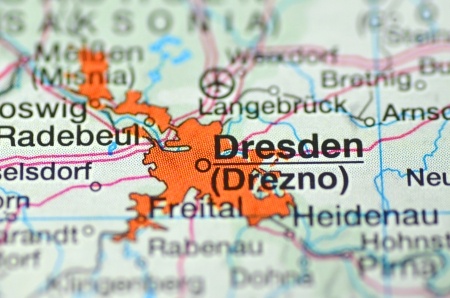
WWII and Terror
At present, the independent-minded are handicapped by conflicting reports. Some suggest that as "little" as 25,000 died in the bombing of Dresden, and at least one military report, dated 1950, estimates 250,000. This kind of thing is not up to the individual. The politics surrounding atrocities also further hamstring unbiased research. It seems as though nations promote signature endings to wars. The Anglocentric favor bombing as opposed to Asia, which appears to take prisoners. Pain is inflicted at the end of a war for emotional reasons, and this particular action may or may not fit that mold. Dresden's bridges, and railroad and industrial installations, provided the pretext for the aerial bombardment. If it did not result in unnecessary, civilian bloodshed, as is averred, it certainly destroyed a great deal of cultural heritage in the way of architectural splendor, an assortment of lesser buildings, art galleries, churches, theaters, museums, and a castle. There is virtually nothing peaceful believers can do about these cumulative wrongs except live with them.
For further study.
- The Bombing of Dresden - History in an HourHistory in an Hour
The bombing of Dresden: the utter destruction of Dresden has come to symbolise the work of the RAF’s Bomber Command and its commander, Sir Arthur Harris.
Chamberlain and the piece of paper that failed.
What do we do?
Even World War II did not cause the sky to fall. Still, it pays for us, as people, to bear in mind that we are organized into countries with leaders. We -- here, anyways -- do not have the power to wage war, though we have some say in how we conduct peace. Hence, we must also be ever-vigilant. This hub is only an historical sketch, with added emphasis on "sketchiness". The war was immense, impossible to capture in print and on film despite great efforts by numerous well-meaning, talented people. But a good reason to keep at it is that, in brief, World War II, like World War I, is a bona fide launching pad for another cataclysmic war. There are those who preserve its memory for just such a purpose. This must never be. But there are also those who re-tell the story, or stories, for the opposite reason. Sundays are as good a time as any to pray for the sanity of our betters. And let us in addition be wary of anyone or party claiming to know the absolute truth about either God or World War II.
World War II
Over and done with? Or is its historical memory vital?
A fellow hubber on the French Occupation
- Life in Paris under Nazi occupation (May 1940 - August 1944) Part 3 - 1942
1942 was another very difficult year for Parisians, and more misery was to descend on people of different faiths, and different origins.


